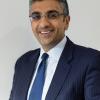Senior consultant surgeons encourage patients to get engaged with the medical advice being given to them and be prepared to ask questions. If you do not feel that you are getting all the information you need, then do not hesitate to seek a second opinion. A professional medical consultant will never be offended by their patient seeking a second opinion, in fact many will recommend it themselves. Completing a medical consultation checklist is an excellent starting point in advance of your appointment.
With all the new 'wonder drugs' or miraculous treatments being pushed on the internet, Consultant Orthopaedic Surgeon, Mr Ian Mc Dermott tries to encourage all patients to, "Do your research!". He goes onto say, "... don’t get distracted by the glossy too-good-to-be-true ‘wonder treatments’ that are unfortunately touted by some deeply unethical individuals!"
Instead Mr McDermott from The London Sports Orthopaedics in the City of London says, "Spend time with your surgeon and ask lots of questions, and if they can’t give you the time that you need or the answers that you require, then they’re not the right surgeon for you".
It's your health, it's your choice
Making an informed choice of doctor is not always straightforward. After all, if you have chronic lower back pain, for example, you could speak to a neurosurgeon, an orthopaedic surgeon, a pain specialist, a physiotherapist or an osteopath. All of these specialists might say that you are in need their services, however, they can't necessarily all be right.
All patients have a right of choice to consultant and hospital. With all the new medical consultant comparison websites including Total Doctor, it is easy these days to find appropriate alternative medical consultants. However, any final decision on who you choose to treat you should be based on trust, the evidence-base for the medical recommendation, and your understanding of the individual approach adopted by the medical consultant.
When information is plentiful and free
Credibility and authority are priceless
We all now have access to any amount of information, however, when information is plentiful and free, credibility and authority are priceless. It is therefore all the more important for everyone to do their own research - and to check the sources. As a good rule of thumb, if you cannot check the source, then avoid that information. For example, they are not necessarily a "Top Doctor" just because they or someone else says they are. Ask how is this statement qualified, do your own research, read their articles describing their personal approach to care (i.e. not AI produced), for example compare what these knee doctors doctors say with regard to your own situation, be prepared to ask more questions and check the independent professional assessments - such as the JRI.
Get to know your consultant
Ian McDermott says, "I try to do the very best that I can in order to achieve the best possible results and outcomes for every one of my patients. I spend considerable time with my patients and I ensure that they receive a lot of information, to help them make the right and best decision for them and for their knee. I always strive to ensure that I’m at the forefront of technological developments in the world of knee surgery, so that I can offer my patients the latest and best treatments currently available".
Ian McDermott's approach is tailored and completely patient focussed. He aims to be at the leading edge with medical and technical developments, so that he can offer patients the very latest and best possible options. However, he would always encourage every patient to do their own research, prepare and to always ask questions.
Pic credit; Shutterstock








